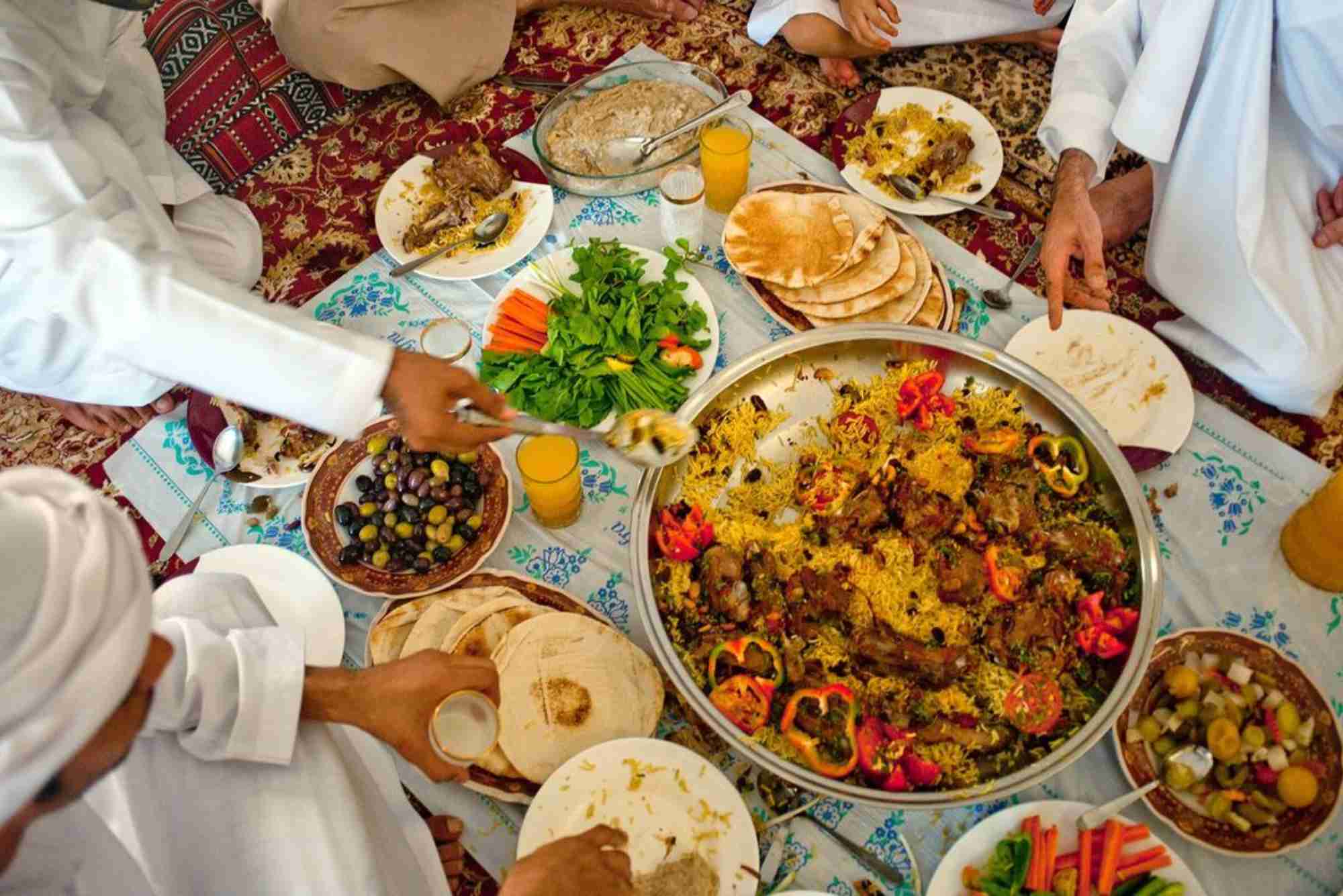Iftar Today in Dubai: When to Break Your Fast This Evening
Ramadan is a sacred month for Muslims around the world, marked by fasting from dawn to dusk. In Dubai, this spiritual practice brings communities together through prayer, reflection, and evening meals. If you’re observing Ramadan, knowing the exact iftar time is essential. Whether you’re a resident or visitor, this article provides a detailed and up-to-date guide on iftar today in Dubai, including practical advice and religious insights to help you navigate your fast.
As the sun sets over Dubai’s skyline, families and friends gather to break their fast together. But when exactly is iftar time today? Let’s dive into the details and what you should know about breaking your fast this evening.
Iftar in Dubai
Iftar is the meal Muslims eat to end their daily fast during Ramadan. It traditionally begins at sunset, coinciding with the Maghrib prayer. In Dubai, this moment is carefully calculated each day based on the sun’s position.
Due to Dubai’s geographical location and time of year, the iftar time varies slightly from one day to the next. Residents rely on prayer timetables, apps, and mosque announcements to ensure accuracy. During Ramadan, the Dubai Islamic Affairs department also publishes official prayer times, which include precise iftar timings.
What Time is Iftar in Dubai Today?
The iftar today in Dubai depends on the exact sunset time, which typically ranges between 6:45 PM and 7:10 PM during the middle and end of Ramadan. Today, the Maghrib prayer—marking the time for iftar—is scheduled around 7:05 PM, but this can change depending on the lunar calendar and sunset tracking. Always refer to a trusted Islamic calendar or local mosque for confirmation.
In recent years, Dubai’s residents have used both printed prayer calendars and mobile applications such as Muslim Pro or IslamicFinder to track iftar times daily. These tools help ensure that fasting individuals break their fast at the correct moment, in accordance with Islamic teachings.
How is Iftar Celebrated in Dubai?
Dubai is a melting pot of cultures, and this diversity is reflected in its iftar traditions. Whether you’re enjoying a quiet meal at home or attending a lavish hotel buffet, iftar in Dubai offers both spiritual and culinary richness.
Home Iftars
Many families prepare dates, water, and soup to break their fast gently, following the Prophet Muhammad’s (PBUH) tradition. This is often followed by a full meal that may include rice dishes, meats, and desserts like kunafa or luqaimat.
Mosque and Community Iftars
Several mosques in Dubai host community iftars, especially for low-income workers and individuals who may not have a place to eat. These gatherings promote unity and charity—two key pillars of Ramadan.
Hotel Iftar Buffets
Dubai’s hospitality industry goes above and beyond during Ramadan. Hotels and restaurants host elaborate iftar buffets, offering a mix of traditional Arabic, South Asian, and international cuisines. While these are more commercial, they still respect the sanctity of the occasion, often starting with the playing of the Maghrib adhan (call to prayer).
Tips for Observing Iftar in Dubai
Here are a few helpful practices to enhance your iftar experience today:
Prepare Before Sunset
Have your food ready before the Maghrib adhan. Dates and water are the most common items to break the fast, and they provide a healthy source of energy and hydration.
Pray Before or After Eating
Some choose to eat a light snack, then perform the Maghrib prayer before sitting down for a full meal. Others prefer to pray first and then eat. Both methods are acceptable, and the choice often depends on personal routine or tradition.
Avoid Overeating
After a full day of fasting, it’s easy to indulge. However, moderation is encouraged in Islam. Overeating can lead to discomfort and reduce the spiritual benefits of fasting.
Why is Iftar So Significant in Islam?
Iftar is not just about food. It’s a deeply spiritual moment where gratitude and discipline come together. Breaking the fast signifies obedience to God’s commandments and reflects compassion for those who face hunger daily.
It is also a time of community. Sharing iftar, whether with family, neighbors, or strangers, strengthens social bonds. In Islam, feeding a fasting person holds immense reward and is encouraged throughout the month.
Can Non-Muslims Join Iftar in Dubai?
Absolutely. One of the unique aspects of Ramadan in Dubai is its openness. Non-Muslims are welcome to participate in iftar gatherings, especially those hosted at restaurants or by friends. However, a few etiquettes should be observed:
- Dress modestly
- Wait for the adhan before beginning to eat
- Respect the spiritual atmosphere
Many expats in Dubai find that attending iftar helps them understand Islamic culture more deeply and fosters greater respect among communities.
Iftar Etiquette: What You Should Know
Iftar in Dubai, whether in a home or a public space, carries certain etiquettes:
- Be punctual: Arriving on time respects the effort of those fasting.
- Start with dates and water: Following the Sunnah shows reverence for Islamic tradition.
- Be considerate: Avoid wasting food and be mindful of those around you.
- Help serve or clean up: Participating in meal prep or cleanup is encouraged and appreciated.
Health Tips for Breaking Your Fast
During Ramadan, it’s important to eat foods that replenish energy without overburdening the digestive system.
- Start with light items: Dates, soup, and fruit juices are ideal.
- Stay hydrated: Drink water steadily between iftar and suhoor to avoid dehydration.
- Balance your meals: Include proteins, carbs, and vegetables in your main course.
- Avoid too much fried food: These can cause discomfort after fasting.
Nutritionists in Dubai often advise planning meals ahead of time, especially during the last ten nights of Ramadan, when people spend more time in prayer.
Ramadan in Dubai: A City Transformed
During Ramadan, Dubai slows down in many ways—working hours are shortened, traffic eases before sunset, and the streets become quieter. However, the spiritual energy increases.
The city supports fasting residents by adjusting public services and encouraging community initiatives. Charities distribute free iftar meals across labor camps, public squares, and even malls. Some families volunteer their time and resources to prepare meals for strangers. Nightlife during Ramadan also shifts. After Taraweeh prayers, cafes and souks become lively as families go out for walks or suhoor (the pre-dawn meal). Ramadan in Dubai offers a unique blend of spirituality and modern city life.
Experience the Blessings of Iftar Today in Dubai
Iftar today Dubai is more than just a meal—it’s a moment of gratitude, reflection, and togetherness. Whether you’re observing Ramadan for spiritual reasons or exploring it as a cultural experience, knowing the exact time to break your fast and following proper etiquette enhances the occasion.
As the sun sets this evening, prepare your dates and water, listen for the Maghrib adhan, and join millions across the city in observing this sacred moment. Whether at home, in a mosque, or at a buffet, let the spirit of Ramadan guide your actions. Ready to plan your iftar today in Dubai? Check your local prayer time app, gather your loved ones, and reflect on the blessings of this holy month.
FAQs
What time is iftar in Dubai today?
Iftar today in Dubai is at approximately 7:05 PM. Please confirm with a trusted prayer time source for your area.
Where can I find the official iftar time in Dubai?
You can refer to Dubai’s Islamic Affairs website, mosque calendars, or mobile apps like Muslim Pro and IslamicFinder.
Is it okay to break my fast a few minutes late?
Yes, but it is preferred to break the fast as soon as the Maghrib adhan is called, as per tradition.
Can tourists or non-Muslims attend iftar in Dubai?
Yes. Non-Muslims are often welcomed at iftar meals, especially in restaurants or community events. Respecting local customs is appreciated.
What foods are traditionally served at iftar?
Dates and water are followed by dishes like lentil soup, samosas, biryani, grilled meats, salads, and traditional sweets like qatayef and kunafa.
Are iftar buffets in Dubai expensive?
Prices vary widely. Some hotels offer luxurious spreads starting from AED 150, while community centers and mosques provide free iftar for those in need.
Can I get iftar delivery in Dubai?
Yes. Most restaurants and food apps like Talabat and Zomato offer special Ramadan menus and delivery for iftar and suhoor.
What should I avoid eating for iftar?
Avoid heavy, greasy, or overly sugary foods right at the start. Opt for hydration, light starters, and gradually ease into your full meal.





